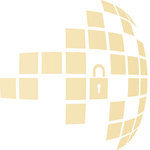Appearance
Generate DID and Process of Resolving it
To generate a new Decentralized Identifier (DID) and resolve a DID, you can use the DIDRegistryContract class from the skc-sdk. Here are the steps for each process:
Generating a New Decentralized Identifier (DID)
Initialize the DIDRegistryContract
- You need to initialize the
DIDRegistryContractusing either a provider or a signer. This involves specifying the contract address, the provider or signer, and the RPC URL.
Generate the DID
- Call the
generateDIDmethod with the public key (Ethereum address) that will be used as the DID identifier.
Here is an example code snippet for generating a DID:
javascript
import { ethers } from 'ethers';
import { DIDRegistryContract } from 'skc-sdk';
// Initialize the provider and signer
const provider = new ethers.JsonRpcProvider("http://localhost:8545");
const signer = provider.getSigner();
// Initialize the DIDRegistryContract using Provider
const didManager = new DIDRegistryContract("0xContractAddress", provider, "rpc-url");
// Generate the DID
const publicKey = "0xYourEthereumAddress";
const did = await didManager.generateDID(publicKey);Resolving a Decentralized Identifier (DID)
Initialize the DIDRegistryContract
- Similar to generating a DID, initialize the
DIDRegistryContractusing either a provider or a signer.
Resolve the DID
- Call the
resolveDIDmethod with the DID string that you want to resolve.
Here is an example code snippet for resolving a DID:
javascript
import { ethers } from 'ethers';
import { DIDRegistryContract } from 'skc-sdk';
// Initialize the provider and signer
const provider = new ethers.JsonRpcProvider("http://localhost:8545");
const signer = provider.getSigner();
// Initialize the DIDRegistryContract using Provider
const didManager = new DIDRegistryContract("0xContractAddress", provider, "rpc-url");
// Resolve the DID
const resolvedDID = await didManager.resolveDID("did:ethr:0x123...");Additional Information
- The
generateDIDmethod returns a promise that resolves to an Ethereum-based Decentralized Identifier (DID) . - The
resolveDIDmethod returns a promise that resolves to a DID resolution result, which includes the details of the resolved DID .
By following these steps, you can generate and resolve a Decentralized Identifier using the DIDRegistryContract class from the skc-sdk.

